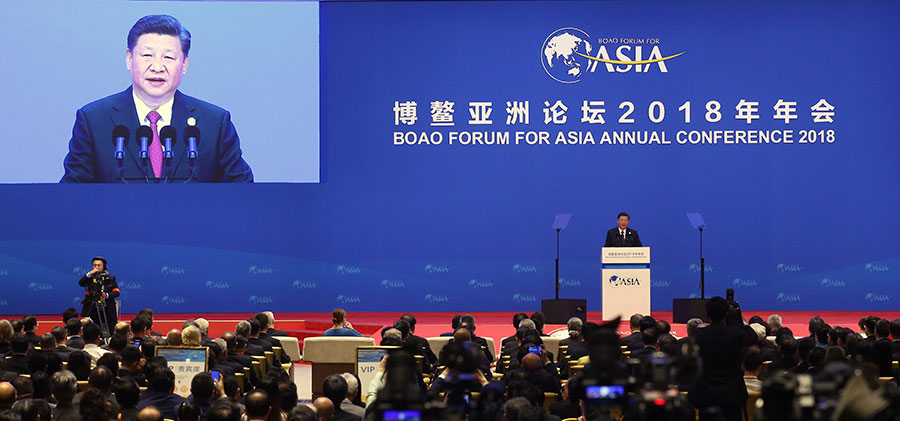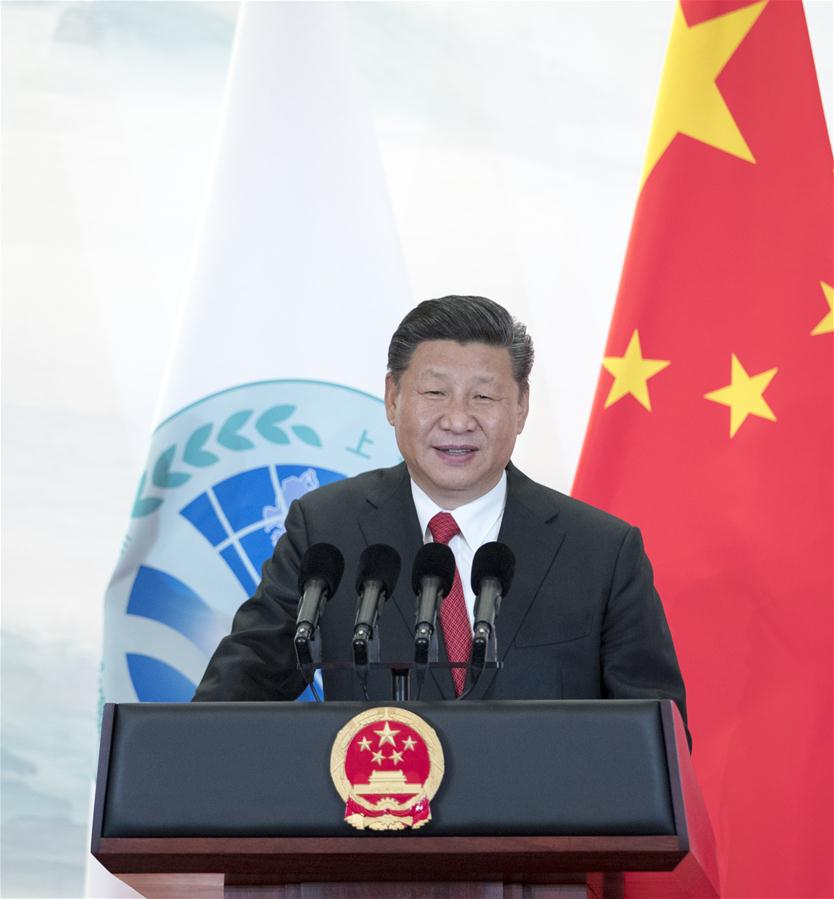
China Reiterates Its Commitment to A Fairer Global Governance
Chinese President Xi Jinping underscored the importance of keeping in mind both internal and international imperatives, focusing on realizing Chinese nation’s rejuvenation and promoting human progress, and making contributions to the building of a global community of shared future.
By Tian Xu
The Central Conference on Work Relating to Foreign Affairs held in Beijing on 22-23 June, 2018 has attracted intensive attention worldwide because it has not only set the tone and guiding principles for China’s diplomatic work in current and coming periods, but also serves as a crucial opportunity for the international community to better understand the role China plans to play in global governance in the future, especially at the backdrop of world major uncertainties caused by the Trump Administration.
In his address at the conference, Chinese President Xi Jinping underscored the importance of keeping in mind both internal and international imperatives, focusing on realizing Chinese nation’s rejuvenation and promoting human progress, and making contributions to the building of a global community of shared future. He also urged the efforts to firmly safeguard China’s sovereignty, security and development interests, take an active part in leading the reform of the global governance system, and build a more complete network of global partnerships. To the international community, especially to those who suffer from the uncertainties of the current global order, the primary concern how China assesses the current international situation and how China would engage in maintaining global order and promoting development.
Δ President Xi Jinping delivers a keynote speech at the opening ceremony of the Boao Forum for Asia Annual Conference 2018. [Photo/China Daily]
How China Assesses Current International Situation
President Xi pointed out that in order to have a correct assessment of international situation and an accurate understanding of history, the overall situation and China’s role and position in the world should be assessed. He stated that China has been in the best period of development in modern times, while the world is undergoing the most profound and unprecedented changes in a century. He also emphasized that China enjoys many favorable external factors to carry out work related to foreign affairs at present and in the years to come. In other words, despite the rise of isolationism, populism, anti-globalization, and ethnic conflicts in recent years, China’s leadership still remained positive towards its external environment. We may infer from the address that communication and cooperation, rather than confrontation, would be the only path to build a better system of global governance that benefits most of the world’s peoples. There is no value in China’s development unless it engages with others. It shows the world that China has the drive and will to contribute to humanity and to the reform of the current global governance system.
How Would China Engage in Maintaining Global Order and Promoting Development?
Based on the judgement of China’s external environment, President Xi indicated that the standard of a global community of shared future should be upheld to help make the global governance system fairer and more reasonable, and the construction of the Belt and Road should be solidified and extended to elevate the country’s opening up to a new level. China has proposed the principle of shared growth through discussion and collaboration as the tenet for all the activities conducted within the realm of global governance. In order to push forward the reform process of global governance, President Xi specifically highlighted the country’s foreign relations, including those with major powers, neighboring countries and developing countries. It seems clear that each set of the relations has its own focus in maintaining global order and contributing to international development.
Δ President Xi Jinping addresses a banquet held for guests attending the 18th Shanghai Cooperation Organization (SCO) summit in Qingdao,
East China’s Shandong province, June 9, 2018. [Photo/Xinhua]
First, the priority among priorities would be China’s relations with major powers. A stable and relatively balanced framework for great powers is fundamental to global peace and security and to growth and prosperity. China has long expressed its willingness to strengthen dialogue and to foster mutual trust with other major powers.
Second, in order to construct a favorable neighborhood environment, China proposes the ideas of amity, sincerity, mutual benefit, and inclusiveness as the basic principles for building friendly relations with regional neighbors. For instance, the Shanghai Spirit of the Shanghai Cooperation Organization well reflects China’s policy orientation towards neighboring countries.
Third, promoting China’s partnerships with developing countries enhances the historic solidarity between China and these countries and reflects their sentimental bonds. At the National People’s Conference in March 2018, China established the International Development Cooperation Agency to better manage China’s aid programs across the developing world and to eventually narrow the North-South gap – a necessary precondition for building a global community of shared future. In short, by proper handling of these three sets of relations, China will always be a builder of world peace, a contributor to global development, and a proponent of a fair and reasonable international order.
Furthermore, the global power balance is undergoing de facto transition. To help make the global governance system fairer and more reasonable, the leading economies, especially the United States and China, should shoulder their responsibilities in a changing global society. From what we may conclude from this conference, China has shown the world its clear vision for the future and its determination to create a better system of global governance. However, to strive for the grand goal of building a global community of shared future, a contribution from the rest of the international community is needed. One step further, the message this conference delivered can also been seen as a call for greater international cooperation, horizontally and vertically, rather than a passive response to the unpredictable and capricious policies of Trump.
Tian Xu, assistant research fellow of Institute of World Economics and Politics Chinese Academy of Social Sciences
Editor: Cai Hairuo
Opinion articles reflect the views of their authors, not necessarily those of China Focus
Related Reading:
 Facebook
Facebook
 Twitter
Twitter
 Linkedin
Linkedin
 Google +
Google +












